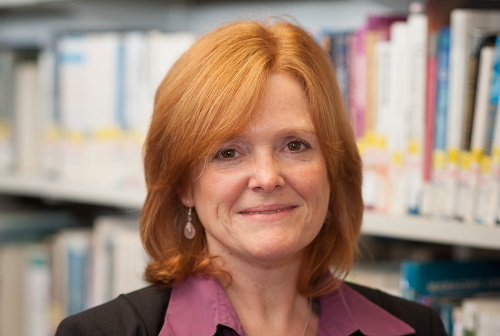
Anne Goulding, Programme Director, MIS
- anne.goulding@vuw.ac.nz
- RH 925, Rutherford House, 23 Lambton Quay, Wellington, 6011, New Zealand

The people you work with and learn from are an important part of your studies. Learn who the teaching staff are and find out what the course is like from recent graduates.


Assistant Librarian, Manuscripts, Museum of Transport and Technology (MOTAT)
Master of Information Studies
After an internship working with documentary heritage collections, I knew a career in libraries and archives was for me. I now work full time as an Assistant Librarian for manuscript collections.
The Master of Information Studies has helped me to bring new ideas to my current workplace and to develop processes around metadata creation and public access to collections. The assignments let me pursue topics which increased my understanding of my working practices.
The Master of Information Studies has given me a broad range of networking opportunities and I'd encourage future students to take them as they arise. Two of the assignments included interviewing and shadowing a manager for the day. Take these opportunities to learn something new or different about the diverse sector we work in.
Studying has definitely meant an adjustment to my lifestyle, although it is not without flexibility! I've been able to complete the Master of Information Studies from Auckland on a part-time basis.
My biggest advice would be that planning your time is key, not only for assignments, but also planning regular breaks for things you enjoy—for me hiking and yoga!

Library Knowledge Specialist (Pacific) at Unitec
Master of Information Studies
I studied the MIS online while living in Auckland, this provided me with the flexibility to study from home and attend lectures via online delivery. Studying part-time over three years and working full-time at Unitec Library was a better option for me personally to gain the relevant knowledge and skills in my sector.
The support I got from library management and my team enhanced my capability to progress in my library career through professional development study options. This included financial support towards my tuition fees each year and study leave to work on my research project.
My colleagues with professional library registration inspired me to use my learning at my workplace everyday. I was also very lucky to have support and motivation from my employer for my INFO 580 research project that involved Unitec Library as a participant.
I share my success with my team at Unitec Institute of Technology (Student Success) and my whānau.
Senior Archivist, Archives Central
Postgraduate Diploma in Information Studies
The programme has been instrumental in increasing my practical knowledge around management of employees in an information environment. It has given me greater insight into technical skills, such as digital curation and the records life cycle, that are directly related to my position as an archivist.
Extending my knowledge base to incorporate not only historical documents but also records and their management has opened up a wider array of career opportunities.
During the programme I have become a member of ARANZ, ALGIM and NDF. The knowledge gained from the programme has allowed me to view issues from multiple angles with peers and has exponentially grown my collegial network within the information sector.
The course has also upskilled me enough to advise Archives Central member’s councils around record retention, disposal, storage, and handling, and best practice for metadata.
The flexibility afforded to me by taking one paper per trimester has allowed me to continue working full-time and continue to enjoy my personal hobbies. My employer allowing me to study 2 hours per week during work hours has also benefited greatly.
Previous
RequirementsNext
How to apply